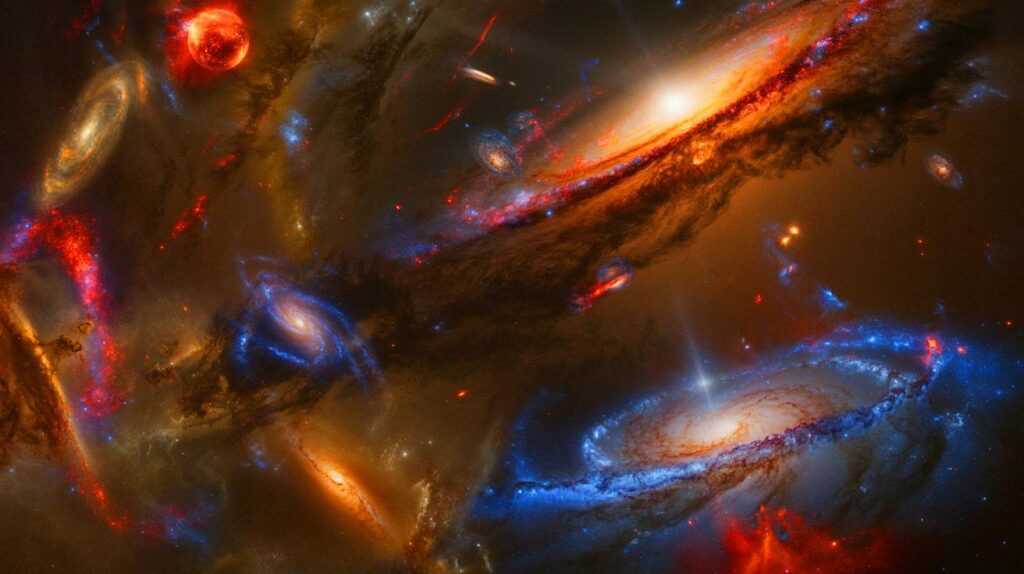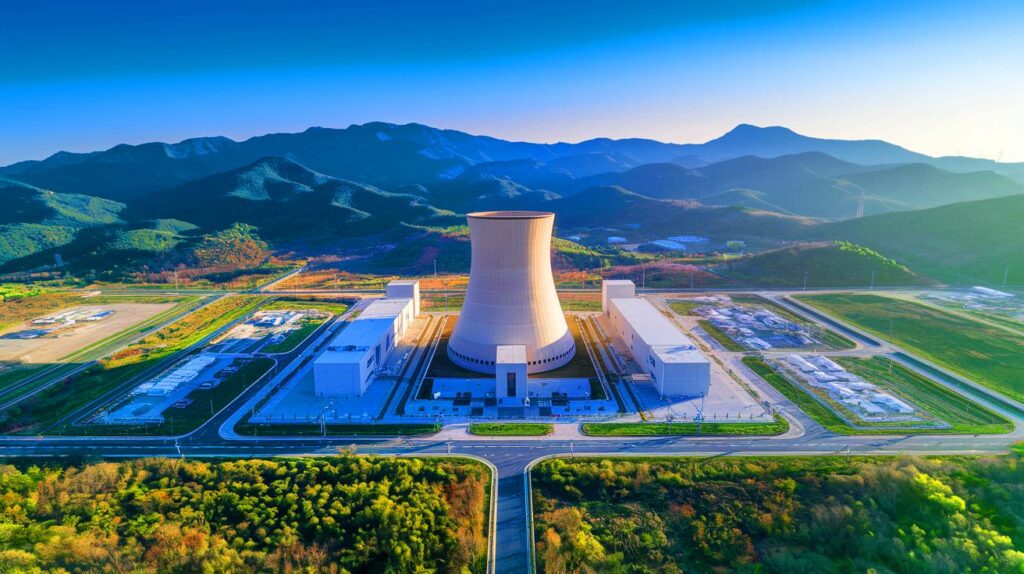| IN BRIEF |
|
For decades, the universe has captivated us with its unfathomable mysteries, particularly those surrounding dark matter and dark energy. These two concepts, which make up a significant portion of the cosmos, challenge our traditional understanding of physics. Recent discoveries from the Dark Energy Survey (DES) question our perception of dark energy, suggesting that its characteristics may be more complex than previously imagined. Let’s delve into these new perspectives that could transform our view of the universe and its laws.
Dark Energy: A Cosmological Constant Challenged
Dark energy has long been viewed as a cosmological constant, a concept introduced by Albert Einstein to explain a mysterious force opposing gravity. This constant was presumed to be fixed, uniform, and unchanging over time, in accordance with the ΛCDM cosmological model. This model relies on the principle that the universe is homogeneous and isotropic on large scales, meaning its properties are uniform everywhere and in all directions. This uniformity led to the assumption that dark energy, like ordinary and dark matter, was evenly distributed throughout the universe.
However, at the time the ΛCDM model was adopted, there was a lack of theoretical mechanisms to explain a possible variation of dark energy over time or space. It thus seemed reasonable to consider dark energy as a fundamental constant of the universe, accounting for the acceleration of its expansion. Yet, this perspective is now being questioned by new data suggesting a more complex dynamic.
Intriguing Discoveries from the Dark Energy Survey
The Dark Energy Survey (DES) has gathered fascinating data that could disrupt our understanding of dark energy. Utilizing the 570-megapixel DECam installed on the Víctor M. Blanco telescope in Chile, researchers have mapped an eighth of the sky over more than six years. They employed various observational techniques, such as studying supernovae and galaxy clusters, as well as weak gravitational lensing.
Initial analyses have revealed significant anomalies. A major finding is that the scale of baryon acoustic oscillations (BAO) seems smaller than anticipated by the ΛCDM model. This scale was found to be 4% lower than expected, which could profoundly impact our understanding of cosmic expansion. If these results are confirmed, it might indicate that dark energy is not a constant and that it evolves over time.
Supernovae: Revealing Standard Candles
Another crucial part of DES data comes from the study of Type Ia supernovae, which act as “standard candles” in astronomy. These supernovae, with a known intrinsic brightness, allow for accurate distance calculations. The results obtained confirm the anomalies observed in baryon acoustic oscillations, suggesting that dark energy could be dynamic.
The DES has published detailed data on these supernovae, reinforcing the idea of evolving dark energy. These discoveries add weight to the hypothesis that dark energy is not an immutable constant. If validated, these conclusions could radically alter our understanding of cosmic distances and the expansion of the universe.
What Implications for Modern Cosmology?
If DES results are confirmed, it could imply a major reconfiguration of our cosmological understanding. The cosmological constant may be replaced by a more dynamic and complex view of dark energy. Juan Mena-Fernández from the Laboratory of Subatomic Physics and Cosmology in Grenoble already points to physics beyond the standard model. These new perspectives could pave the way for a genuine scientific revolution, challenging ideas that have been established for decades.
While the current results are not definitive, researchers continue to explore these anomalies with new analyses and data. The scientific community views this as an opportunity to explore new theoretical avenues, considering more flexible cosmological models to explain these discoveries. The future of cosmology may be profoundly transformed by these new interpretations of dark energy.
Recent discoveries disrupt our understanding of dark energy and raise numerous questions about our current cosmological model. What other mysteries does the universe hold, and how might this new data influence our perception of the fundamental laws that govern the cosmos? Research continues, promising new revelations about the enigmas of the universe.







